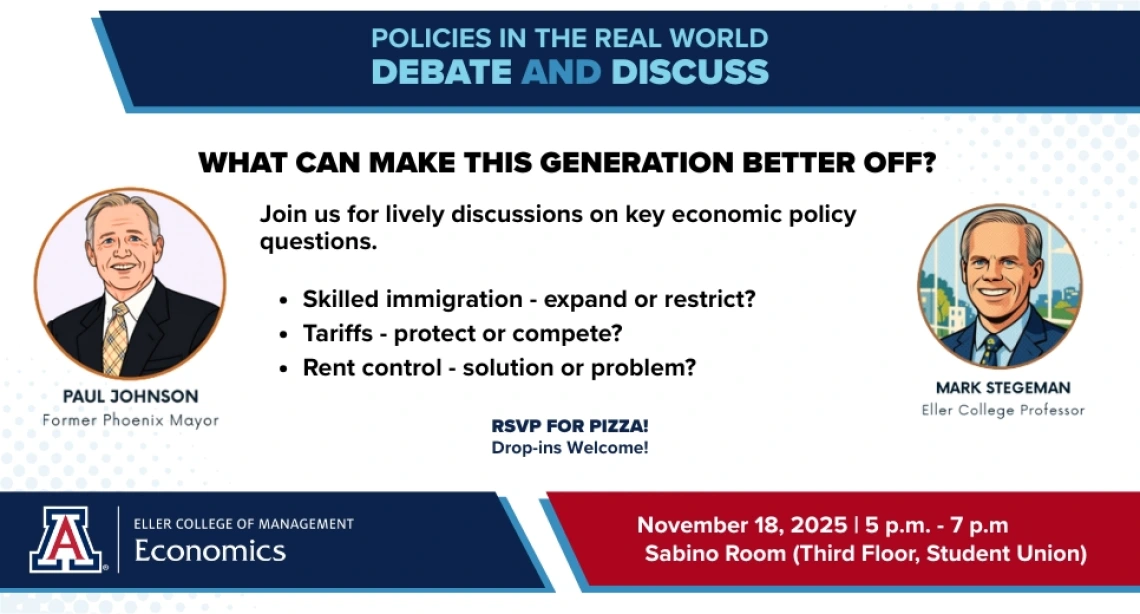Image

When
5 – 7 p.m., Nov. 18, 2025
Where
Sabino Room (Third Floor, Student Union)
Join us for an interactive discussion exploring economic policies that shape our generation's future. Choose a topic you care about, work with a team to develop arguments, and engage in meaningful discussion with your peers.
Paul Johnson Phoenix Mayor (former) Arizona Independent Party Chairman | Mark Stegeman Associate Professor of Economics, Eller College Governing Board President, Tucson Unified School District (former) |
Teams will collaborate to present their positions, followed by group discussion and reflection on different perspectives.
Ground Rules
Focus on ideas, evidence, and outcomes. Respectful dialogue that examines who benefits, who's affected, and what the broader economic impacts might be.
Explore the economic implications of:
- Rent Control
- Tariffs
- Immigration Policy for Skilled Workers
Come ready to think critically, listen to different viewpoints, and contribute to a conversation about policies that affect our economic future.
Views expressed during this event are those of the speakers and do not necessarily represent the views of Eller College of Management or the Eller Economics Department
Contacts
Mark Stegeman

